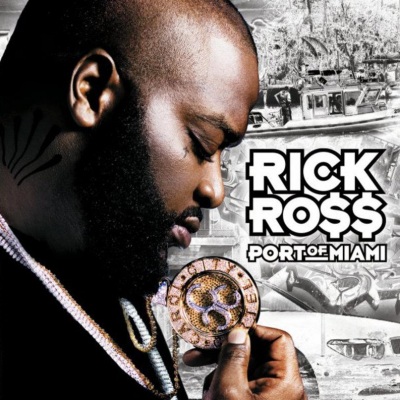
Port of Miami
by Andy KellmanNicknamed after a notorious drug dealer, William "Rick Ross" Roberts claims to have dealt drugs himself, prior to becoming an MC and gaining the interest of Def Jam president Jay-Z. Rather than merely lure Ross away from his initial label (Slip-N-Slide) with a lucrative contract, Jay-Z linked up with the entire label and netted a distribution deal. "Hustlin'," a leviathan, trunk-rattling single released a few months prior to Port of Miami -- Rick Ross' official debut album, following a series of mixtapes -- informed everyone within earshot about Ross' modus operandi. He's Miami's answer to Atlanta's Young Jeezy, Def Jam's breakout artist of 2005. He has a slow, husky drawl, almost always sounding like he should either clear his throat or drink some water, and raps almost exclusively about peddling coke and the lifestyle that comes with the trade. He's relatively less agile than Jeezy and doesn't sound nearly as experienced as a rhymer, but his imposing presence and uniquely enunciated pronouncements are alluring, even when his lyrics are random and amount to little more than space-filling, lumpishly projected nonsense -- like, say, "Ever seen a fat boy in a big body?/Know you wanna sit bah me, all you do is think bot it/Lease apartments to get kicked ot it/Next day buy a condo to get a kick ot it." On occasion, he shows promise as a lyricist with flashes of Jeezy or even T.I. when it comes to relating the ups and downs of the life. His pen redeems "Cross That Line," which features another autopiloted Akon appearance, just like Young Jeezy's similarly anthemic "Soul Survivor": "Lil' brother knowing life illegal/No toys, just playin' with pipes and needles." Jay-Z enlists a handful of A-list producers, including Jazze Pha, DJ Toomp, and Cool & Dre, as well as the Runners, who handle nearly a third of the tracks, "Hustlin'" included.
